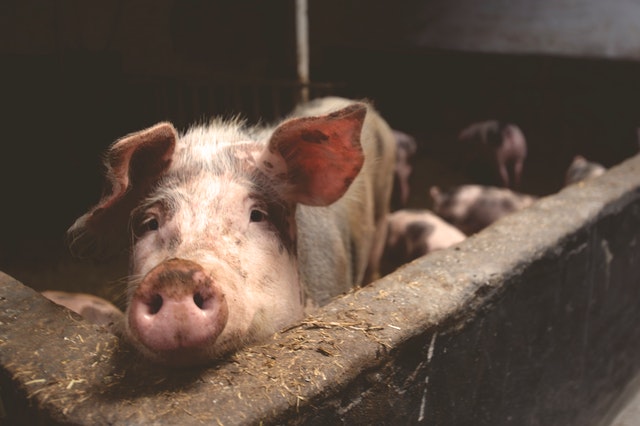

The Ministry of Agriculture and Agro-based Industry (MoA) and other related ministries and agencies plan to monitor and carry out inspections on premises suspected to be smuggling in pork and pork products. MoA stated that the move will be taken following the DNA of the African Swine Fever (ASF) virus that was detected in the luncheon pork product in Sarawak. The Veterinary Public Health Laboratory in Bandar Baru Salak Tinggi detected the virus in a pork product that was imported from China to Sarawak.
Although the Department of Veterinary Services (DVS) has assured that Malaysia, a country with 600 pig farms nationwide and a swine population of 1.5 million, is still considered ASF-free, the ministry will take the findings seriously and warn the public not to buy pork products originating from countries which are at risk. Furthermore, legal action will also be taken against those caught bringing the products illegally.

As stated by Dr Quaza, director-general of DVS, none of the commercial pig farms in eight states has shown any signs of the disease based on clinical surveillance. A table-top simulation to do a random check on 180 pork meat imported into the country through West Port, Port of Pasir Gudang and Bukit Kayu Hitam from countries that were affected by the virus had also been conducted by The Malaysian Quarantine and Inspection Services (MAQIS) had also since Nov 12 last year.
DVS had issued a ban on the importation of pigs and pork products originated from China (November 2018), Poland and Belgium (January 2019), Thailand and Vietnam (January 2019), Cambodia (April 2019), Hong Kong (May 2019), Myanmar and Laos (August 2019) as a precautionary measure.
Under Section 31 of the Animal Act 1953 (Act 647), pig farmers are responsible to immediately lodge a report to the veterinary authorities if any pig is suspected of a disease or have died and it shouldn’t be transferred without an approval. The government warned that farm owners who don’t report sickness or unnatural death among their livestock could be fined up to RM 25,000.
According to the ministry, ASF outbreaks have been confirmed in 10 Asian countries, including China, Mongolia, Cambodia, Vietnam, Laos, North Korea, Myanmar, the Philippines, South Korea, and Timor Leste. It is a highly contagious hemorrhagic viral disease caused by a DNA virus of the Asfaviridae family. ASF attacks domestic and wild pigs and can cause up to 100% death of infected pigs within 2-10 days. However, ASF is a non-zoonotic disease, infecting animals and not humans.
Minister Sim Tze Tzin mentioned that six ASF outbreaks have been reported in Asia as of June 20, 2019. The first outbreak in Vietnam was reported on Feb 19 and 2.5 million pigs have been culled so far. While there was only one ASF outbreak reported in Cambodia, resulting in 2,400 pigs being killed or died due to the disease. As for North Korea, the first ASF case was reported on May 23 and 77 out of 99 pigs in the field died from the plague.

The Latest Developments in Cryptocurrency Adoption in SEA
The cryptocurrency market in Southeast Asia (SEA) has seen exponential growth in recent years. The revenue of cryptocurrency in the region was around USD 1,384 million in 2023 and is expected to grow by USD 1 million in the next four years. Countries like Indonesia, Singapore, and the Philippines are at the forefront of this digital revolution. The region's young, tech-savvy population, coupled with increasing internet penetration, has created a fertile ground for the adoption of cryptocurrencies. Currently, the crypto market in SEA is valued at several billion dollars, with projections indicating continued growth.

An Overview of the Halal Cosmetics Market in Malaysia
The halal cosmetics market in Malaysia has been experiencing significant growth. It is driven by a combination of increasing consumer awareness, government support, and the rising demand for halal-certified products among both Muslim and non-Muslim consumers.

How Digital Marketing is Transforming the Automotive Lubricants Market in Southeast Asia
In recent years, digital marketing has emerged as a transformative force in the Southeast Asian (SEA) automotive lubricants market. The region's rapidly growing internet penetration and increasing smartphone usage have created fertile ground for innovative digital strategies. This evolution is reshaping how companies engage with customers and streamline their operations, offering numerous opportunities for growth and efficiency.

Exploring New Business Models for a Sustainable Future
Transitioning towards new sustainability business models can help companies drive positive change and contribute to a more sustainable future.